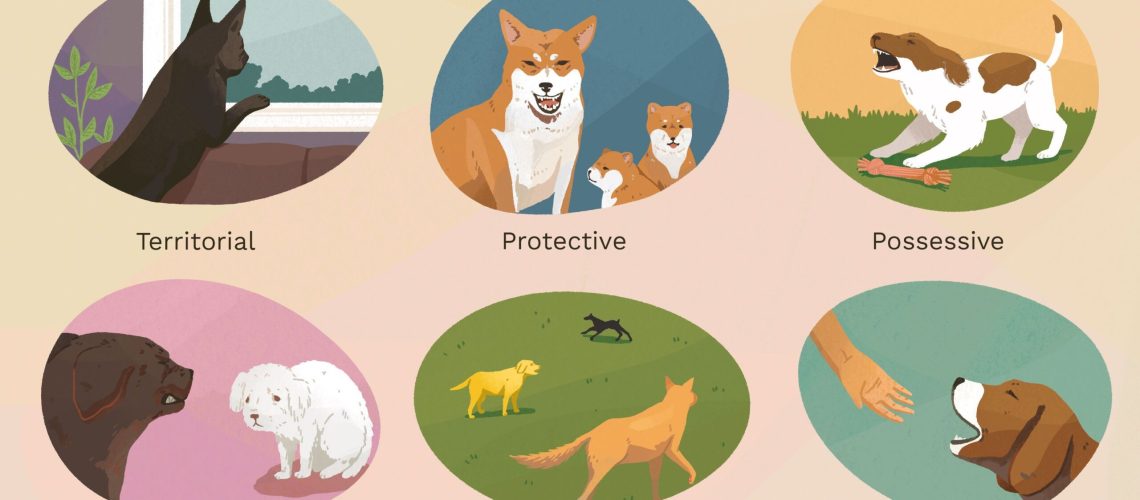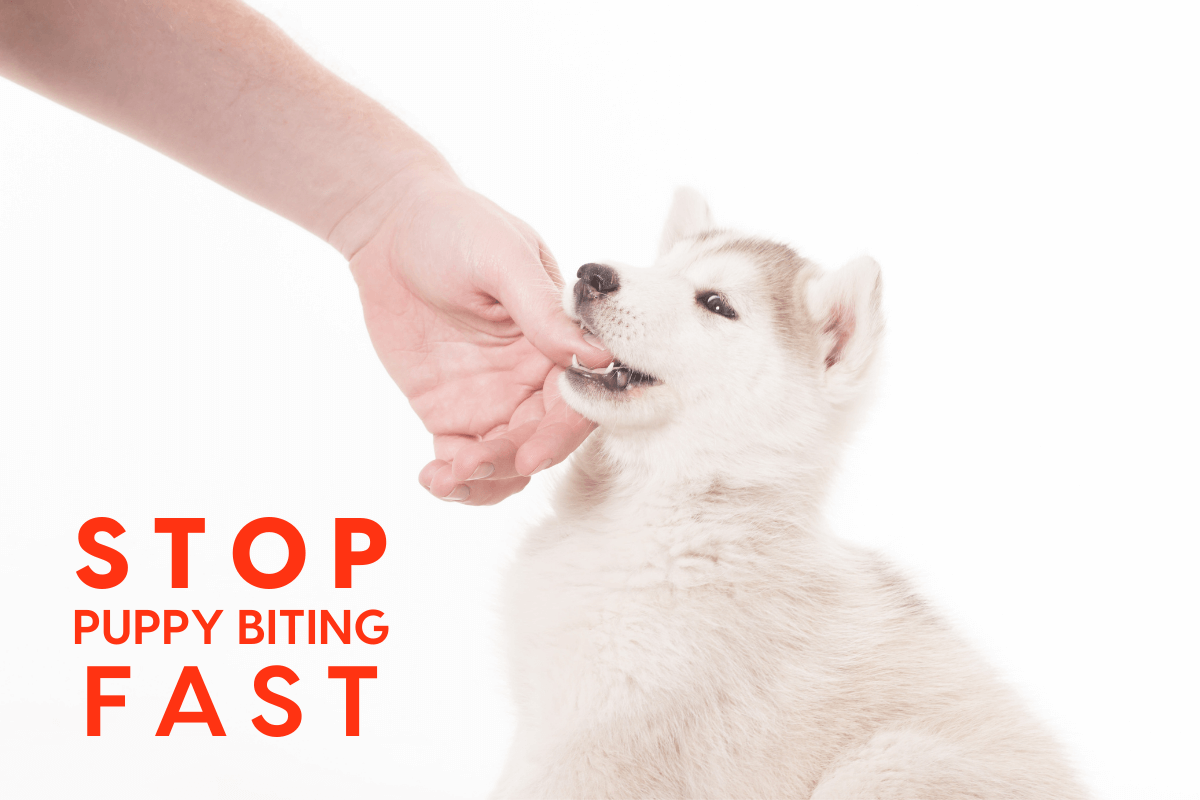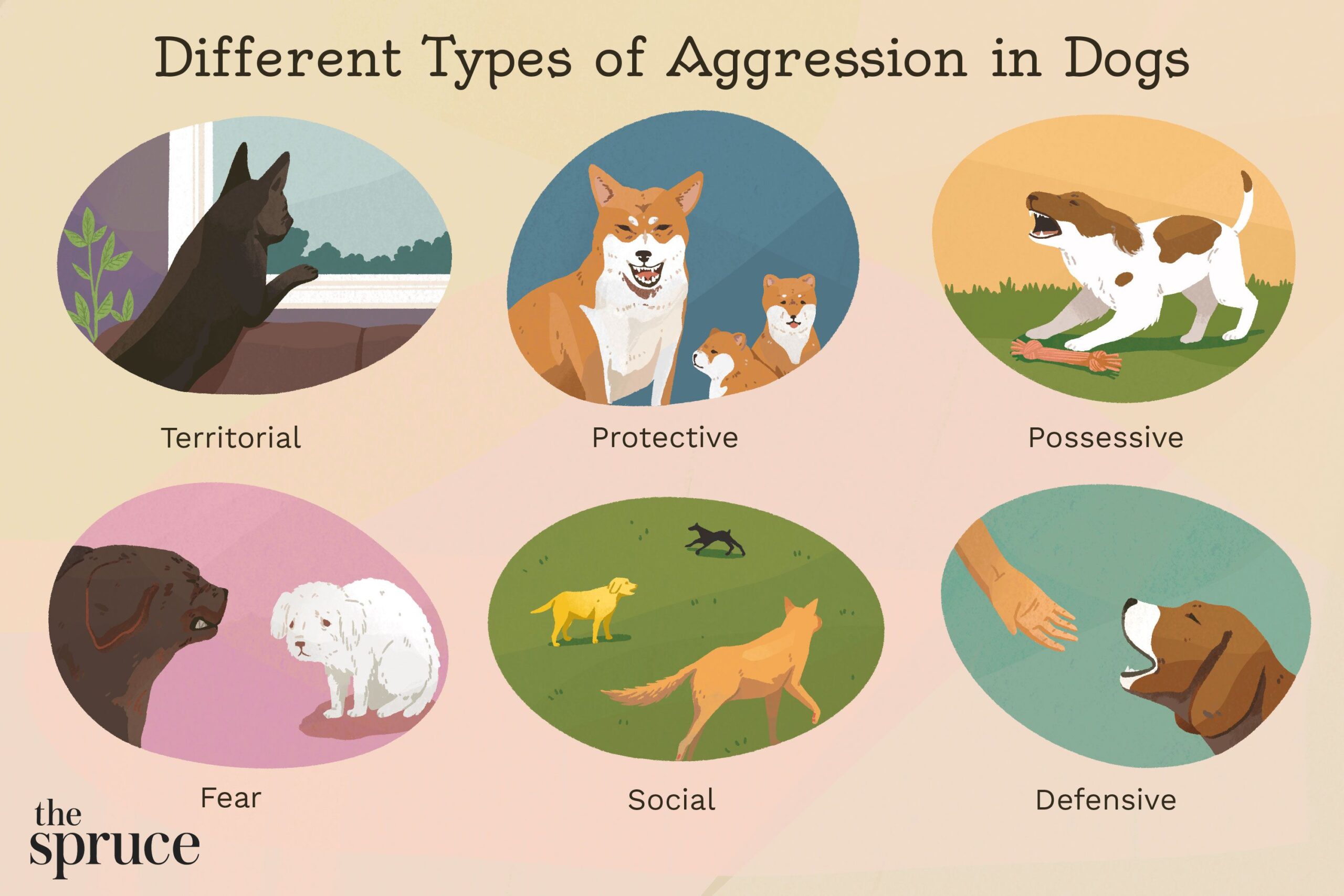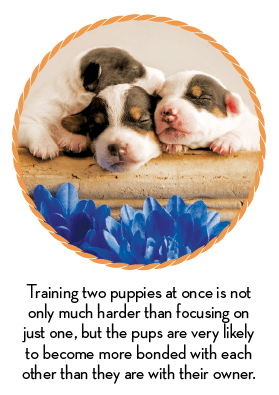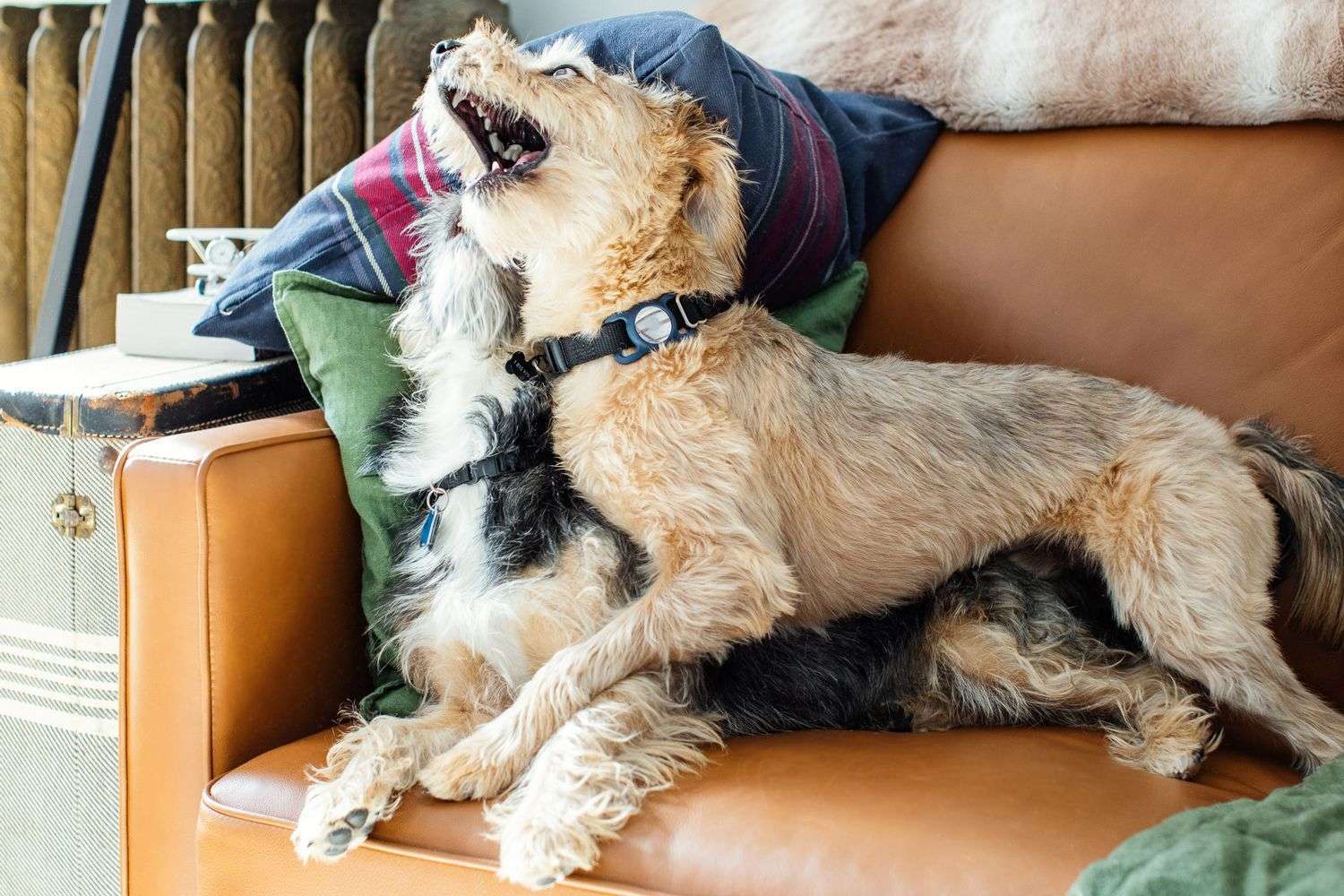Conflict aggression in puppies refers to the aggressive behavior displayed by young dogs during conflicts. This behavior can range from growling and biting to more intense forms of aggression. Understanding and addressing conflict aggression in puppies is crucial for their well-being and creating a harmonious environment.
Key Takeaways:
- Puppies may exhibit aggression towards other dogs or humans as a result of fear, insecurity, or lack of socialization.
- Proper socialization and positive reinforcement training are crucial in preventing and managing conflict aggression in puppies.
- Early intervention and addressing aggressive behaviors promptly can help prevent the development of long-term aggression issues.
- Understanding canine body language and recognizing signs of stress or discomfort can help identify potential triggers for conflict aggression in puppies.
- Seeking professional help from a certified dog trainer or behaviorist is recommended for effectively addressing and managing conflict aggression in puppies.
Understanding Conflict Aggression in Puppies: What is it and why does it happen?
Conflict aggression in puppies refers to aggressive behavior that occurs when a puppy feels threatened or uncomfortable in a certain situation. This can include growling, barking, lunging, or even biting. It is important to understand that conflict aggression is a natural response for puppies who are still learning how to communicate and navigate their environment.
Puppies may display conflict aggression for various reasons. One common cause is fear or anxiety. When a puppy feels scared or threatened, they may react aggressively as a way to protect themselves. Another reason for conflict aggression can be resource guarding, where a puppy becomes possessive over food, toys, or other valuable items. Additionally, puppies may show aggression when they are in pain or discomfort.
Why Does Conflict Aggression Happen?
Conflict aggression happens because puppies are still developing their social skills and learning how to interact with the world around them. They may not yet have learned appropriate ways to handle situations that make them feel uncomfortable or threatened. It's important to remember that conflict aggression is not necessarily a sign of a "bad" puppy; rather, it is an indication that they need guidance and training to learn more appropriate behaviors.
As puppies grow and mature, they will continue to learn from their experiences and interactions with others. With proper training and socialization, most puppies will outgrow their conflict aggression tendencies over time.
Signs of Conflict Aggression in Puppies: How to identify them
Identifying signs of conflict aggression in puppies can help owners address the issue early on and prevent any potential harm or escalation of aggressive behavior. Here are some common signs to look out for:
- Growling: Puppies may growl when they feel threatened or uncomfortable. It is their way of communicating that they are not happy with the situation.
- Barking: Excessive barking, especially in response to certain triggers, can be a sign of conflict aggression in puppies.
- Lunging: When a puppy lunges forward aggressively, it is an indication that they are trying to establish dominance or protect themselves.
- Biting: In extreme cases, puppies may resort to biting as a way to defend themselves. This is a serious sign of conflict aggression and should be addressed immediately.
If you notice any of these signs in your puppy's behavior, it is important to seek professional help from a veterinarian or a certified dog trainer who can provide guidance on how to manage and address the aggression.
Potential Triggers for Conflict Aggression in Puppies: What causes it?
Environmental Factors
One potential trigger for conflict aggression in puppies is environmental factors. Puppies that are exposed to a chaotic or stressful environment may be more prone to displaying aggressive behavior. This could include loud noises, frequent disruptions, or inconsistent routines. Additionally, if a puppy is not provided with enough mental and physical stimulation, they may become frustrated and resort to aggression as an outlet for their pent-up energy.
Lack of Socialization
Another common cause of conflict aggression in puppies is a lack of proper socialization. Puppies that do not have opportunities to interact with other dogs and humans during their critical socialization period (typically between 3-14 weeks of age) may develop fear or anxiety towards unfamiliar individuals or situations. This fear can manifest as aggression when the puppy feels threatened or overwhelmed.
Preventing and Minimizing Conflict Aggression in Puppies: The role of training and socialization
To prevent and minimize conflict aggression in puppies, training and socialization play crucial roles. Training should focus on teaching the puppy appropriate behaviors and providing them with clear boundaries. Positive reinforcement techniques, such as rewarding good behavior with treats or praise, can be highly effective in shaping desired behaviors.
Socialization is equally important as it helps puppies become comfortable and confident in various environments and around different people and animals. Introducing the puppy to new experiences gradually and positively can help reduce the likelihood of conflict aggression later on. Puppy classes, supervised playdates, and controlled interactions with well-behaved adult dogs can all contribute to successful socialization.
Managing Conflict Aggression in Puppies: Effective techniques to handle it
Distract and Redirect
One effective technique for managing conflict aggression in puppies is to distract and redirect their attention. When a puppy starts displaying aggressive behavior, such as growling or biting, it is important to intervene calmly and redirect their focus onto an appropriate toy or activity. This helps shift their energy away from the aggressive behavior and teaches them more acceptable ways to play and interact.
Positive Reinforcement Training
Using positive reinforcement training methods can also be highly effective in managing conflict aggression. By rewarding the puppy for calm and non-aggressive behaviors, they learn that these behaviors are more desirable and will be more likely to repeat them. Consistency is key when using positive reinforcement, as the puppy needs clear cues on what behaviors are expected of them.
Differences between Male and Female Puppies in Conflict Aggression: Is there a distinction?
When it comes to conflict aggression, there may be some differences between male and female puppies. While individual temperament plays a significant role, hormonal differences can also contribute to variations in aggression levels. Male puppies tend to have higher testosterone levels, which can make them more prone to assertive or dominant behaviors. On the other hand, female puppies may display protective or territorial aggression especially during certain phases of their reproductive cycle.
Responding to Puppy's Conflict Aggression: What should owners do?
When faced with a puppy displaying conflict aggression, owners should prioritize safety for all parties involved. It is crucial not to punish or physically reprimand the puppy as this can escalate the situation further. Instead, owners should remain calm and remove any triggers that may be causing the aggression. Providing appropriate outlets for physical exercise and mental stimulation can help alleviate excess energy that may contribute to aggressive behavior. Seeking guidance from a professional dog trainer or behaviorist is recommended if the aggression persists or worsens.
Growth and Development: Can puppies outgrow conflict aggression as they mature?
In many cases, puppies can outgrow conflict aggression as they mature and learn appropriate social behaviors. With proper training, socialization, and consistent reinforcement of positive behaviors, puppies often develop better impulse control and become more adept at resolving conflicts without resorting to aggression. However, it is important to note that individual temperament and early experiences can also influence long-term behavior. Some puppies may require ongoing management and training to ensure their aggression does not persist into adulthood.
Long-term Effects of Unaddressed Conflict Aggression in Puppies: What are the risks?
Unaddressed conflict aggression in puppies can have several long-term effects. Firstly, it can lead to a breakdown in relationships between the puppy and other dogs or humans, making future interactions challenging or even dangerous. Additionally, if the aggressive behavior is not addressed early on, it may become ingrained and more difficult to modify as the puppy grows older. This could result in a higher risk of bites or injuries to both animals and people. Furthermore, unaddressed conflict aggression can cause significant stress for the puppy themselves, leading to anxiety or fear-related issues that may impact their overall well-being.
| Conclusion | |
| Conflict Aggression in Puppies: | Understanding and Addressing the Issue |
| In conclusion, conflict aggression in puppies is a common behavioral problem that can be effectively managed through proper understanding and training. By recognizing the signs of conflict aggression, providing consistent discipline, socializing puppies from an early age, and seeking professional help when necessary, owners can help their puppies overcome this issue. Remember, patience and positive reinforcement are key to resolving conflict aggression and ensuring a happy and well-adjusted puppy. | |
How do you fix conflict aggression in dogs?
Dogs who are prone to using aggression to manipulate a situation are usually not completely cured, but they can often be managed. Improvement can be achieved through consistent and predictable interactions, avoiding situations that provoke aggression, and establishing a daily routine of exercise, play, and socialization.
What are the symptoms of rage syndrome in puppies?
Rage Syndrome is characterized by intense and sometimes unpredictable outbursts of aggression. These episodes are often disproportionate to the situation at hand and can include freezing, staring, and quickly escalating to biting in affected dogs.
What is abnormal aggression in puppies?
If you come across a young puppy that is showing aggressive behavior like baring its teeth, snarling, or lunging with the intention of hurting another dog or person, or biting and holding another puppy while it cries, this is usually not normal. It is important to seek professional help immediately if you witness such behavior.
Why is my 4 month old puppy aggressive to other dogs?
The main cause of aggression in puppies under 6 months old towards other dogs and puppies is fear. Additionally, some puppies become aggressive towards others in order to protect their resources and get what they want, especially if there is a limited supply of resources.
Why is my 4 month old puppy being aggressive?
It's common for puppies to become irritable and snap when they're tired. This behavior is often mistaken for aggression, but it's actually normal. Puppies learn to be protective of their belongings, especially when their owner consistently takes away things without providing a substitute.
What breeds get rage syndrome?
Certain dog breeds, such as Cocker Spaniels (referred to as 'Cocker Rage'), English Springer Spaniels, Doberman Pinschers, German Shepherds, Bernese Mountain Dogs, St. Bernards, and Lhasa Apsos, are more prone to this behavior. This suggests that there may be a genetic disorder or genetic factor contributing to its cause.



